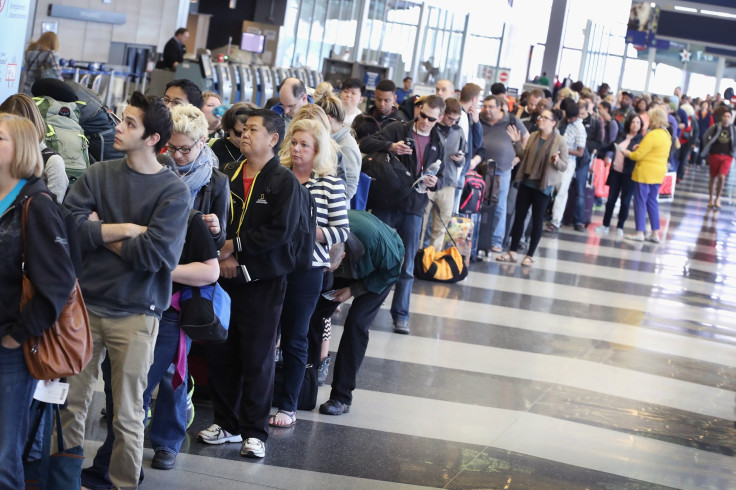Airport Security Rules: TSA Says Prepare For New 'More Intimate' Pat-down Searches

Always rushing through airports to catch your flights? It may be advisable to reach a few minutes earlier because starting over the next few weeks, the Transportation Security Administration (TSA) has indicated a change in its pat-down approach that it described will involve “more intimate contact.” The new procedures will begin with smaller airports and eventually be implemented across all airports in the country.
Abandoning the currently used security protocol of the five different types of physical pat-downs at the screening line, TSA will now use a more “comprehensive” and “universal” physical screening pat down," Bloomberg reported Friday. Denver International Airport has already notified all its employees and flight crews regarding the newer, “more rigorous” searches which "will be more thorough and may involve an officer making more intimate contact than before."
“I would say people who in the past would have gotten a pat-down that wasn’t involved will notice that the [new] pat-down is more involved,” TSA spokesman Bruce Anderson said Friday.
Although Anderson denied the suggestion that this new approach would create an overall increase in security delays, he cautiously added that "for the person who gets the pat down, it will slow them down."
Meanwhile, a passenger who experienced the new pat-down procedure at the Redding Municipal Airport in California told NBC News that he felt that the new procedure was invasive.
The passenger, identified as Joel Stratte-McClure, said that a TSA agent warned him that in order to look for concealed weapons hidden in pants etc, the new procedure “would involve a more intense horizontal and vertical pat down,” while he was catching a flight to Egypt on Thursday.
“This was the most intriguing, intense and invasive pat down I’ve had by the TSA since they came into existence,” the passenger, identified as Joel Stratte-McClure, said in an email to NBC News. “Usually it’s comparatively perfunctory (the gold bracelet on my right wrist sets off every security alarm in the US).”
“Seasoned travelers might take it in stride but infrequent travelers will be embarrassed and shocked,” he added.
The change in the policy is reportedly due to a 2015 audit conducted by the Department of Homeland Security’s Inspector General that criticized the TSA screening procedures for failing to detect handguns and other weapons.
The new policy also includes an increase in random checks of airport workers with crewmember status who are usually subjected to less stringent security. However, Anderson clarified that random search for airline crew would still be lesser than those of other airport employees.
“Sometimes it’s random, sometimes they’re consistent, based on the door you enter,” Anderson said, implying that the random searches would depend upon the airport and the screening program.
Denver airport officials also specified that employees can be searched at any random location.
“If a pat down is required as part of the operation, badged employees will be required to comply with a TSA officer’s request to conduct a full body pat down,” Denver airport officials reportedly said in a notice.
The TSA, however, has still not confirmed whether the new universal pat-down will involve touching the genitals of passengers.
Meanwhile, United States Customs and Border Protection has also reportedly been tinkering with airport security procedures to make the process more modern. For instance, they piloted a facial recognition technology that involves biometric recognition of faces, irises and/or fingerprints, to eliminate use of passports in two airports, John F. Kennedy International Airport and Washington Dulles International Airport in 2015 and 2016, respectively, with similar plans of introducing it on an unspecified timeline to all other major airports.
© Copyright IBTimes 2024. All rights reserved.






















